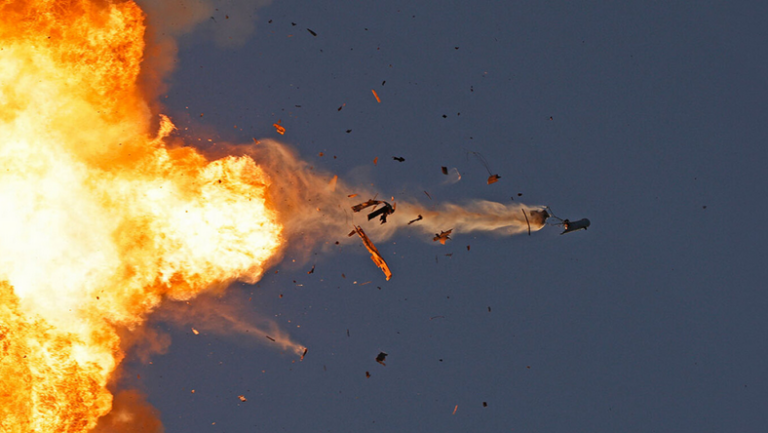Hezbollah launched a massive attack against Israel, with the organization claiming to have fired over 320 Katyusha rockets at 11 military bases in a first wave. On their part, the Israeli armed forces announced today that they carried out dozens of preemptive airstrikes in Lebanon, as they had detected preparations by the Lebanese armed movement for the “wide-scale” attack that was eventually carried out.
Hezbollah’s attack was in retaliation for the assassination of a leading member of its military wing, Fuad Shukr, in an Israeli airstrike in a suburb of Beirut in July.
Hezbollah announced that it “launched an aerial attack with a large number of unmanned aerial vehicles (drones) and missiles in retaliation for Shukr’s death,” specifying that they targeted a designated “special military objective, as well as Israel’s Iron Dome platforms and other locations.”
The Shiite movement Hezbollah of Lebanon announced shortly after 7 a.m. that it had completed “the first phase” of its reprisals.
Israel considers the developments to be very serious. Defense Minister Yoav Gallant has declared a state of emergency in the country for the next 48 hours due to the critical situation.
The Israeli Security Council is currently in session, while the Israeli military has announced airstrikes along the Lebanese border.
The Israeli armed forces reported that most of their airstrikes—at least 40, according to Israeli media—have so far targeted locations in southern Lebanon. However, they warned that they would strike any location they deem a threat. They also mentioned that they counted “over 150” projectiles fired from Lebanon.
In a video released on X, Israeli military spokesperson Daniel Hagari emphasized that “fighter jets are currently attacking” Hezbollah positions.
Earlier, the Israeli military stated in a message written in Arabic, directed at the residents of southern Lebanon and published on Telegram, “We observed Hezbollah’s preparations for large-scale attacks against Israeli territory.”
They urged “anyone near areas where Hezbollah is operating” to leave “immediately (…) for their own safety and the safety of their family,” adding that they “will do what is necessary to protect the citizens of Israel.”
The Al-Manar television network, which is affiliated with the Shiite Lebanese movement Hezbollah, a sworn enemy of Israel, reported a series of Israeli raids on the areas of Kunin, Rashaf, At Tiri, Beit Yahoun, Al Khardali, Zawtar, Iqlim al-Tuffah, and Al Rayhan in southern Lebanon.
Meanwhile, flights to and from Ben Gurion Airport in Tel Aviv resumed this morning, according to a recent announcement by Israel’s Civil Aviation Authority. This follows the delay of departures and the diversion of landings to other airports in the country due to Hezbollah’s attack.
The spokesperson for the Israeli Civil Aviation Authority, Roy Steinmetz, announced that Ben Gurion Airport resumed operations “at 07:00” local time (also Greek time), including both departures and arrivals.
He added, “The planes that were diverted to other airports will take off again for Ben Gurion.”
The White House is closely monitoring the developments. After the Israeli attacks, Defense Minister Gallant briefed his American counterpart, Lloyd Austin.
The U.S. “will continue to support Israel’s right to defend itself,” stated a spokesperson for the U.S. National Security Council. Additionally, President Joe Biden has requested that American officials maintain regular communication with Israel, the spokesperson added.
Exchanges of fire between the Israeli armed forces and Hezbollah have become almost daily occurrences since the outbreak of the war in the Gaza Strip.
Since October 8, over 600 people have been killed in Lebanon, mostly Hezbollah fighters, but also 131 civilians, including journalists, according to a count by Agence France-Presse. On the other side, in Israel and the occupied and annexed Syrian Golan Heights, 23 soldiers and 26 civilians have been killed, according to official Israeli data.
Ask me anything
Explore related questions





